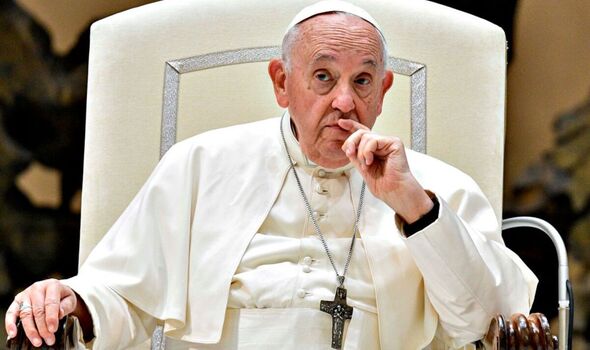By Anthony Emeka Nwosu
The Vatican, the global headquarters of the Catholic Church, is reportedly facing a financial crisis. According to a tweet by a Catholic commentator, @ShadowofEzra, the Vatican is struggling to meet its pension obligations due to a significant drop in revenue. The tweet has sparked intense discussions, especially on X (formerly Twitter), with many Catholics expressing frustration about the Church’s financial state and its handling of sensitive issues such as LGBTQ matters.
Declining Donations and Growing Frustration
One of the main reasons for the financial troubles is a dramatic drop in donations from Catholic churches and individuals worldwide. Many members of the Church are withdrawing financial support, feeling disappointed by some of the reforms introduced under Pope Francis.
A user, @envisionalt7, reflected this frustration, saying, “Karma: Pope Francis goes woke, and the Vatican goes broke. Betraying your religion and everything your followers believe in is a terrible idea.”
Others pointed to questionable financial priorities. Donna Marie wrote, “They have plenty of money for bringing illegal immigrants into America! Catholic Charities’ revenue has quadrupled under the Biden-Harris administration—from $44 million to $217 million.”
Similarly, @Gandolph41 voiced discontent, saying, “When you have an imposter Pope, you can expect poor returns. I no longer attend Mass or donate. I’ll wait for a real Catholic Pope, not a World Economic Forum Pope.”
Divided Opinions Among Believers
While some Catholics have stopped attending Mass or donating, others believe the faith transcends leadership. Stella C urged believers to stay committed: “The Church was established by Jesus Christ. The gates of hell shall not prevail against it. Bad leadership or not, if you’re Catholic, you still need to fulfill your obligations.”
This perspective sparked debate. Jackson Gatt replied, “Obligations should be to God, not to any priest, bishop, or cardinal supporting a flawed Pope. I love the Catholic Church, but I refuse to follow anyone who doesn’t stand for Christ.”
Meanwhile, Casey shared his struggle: “I miss attending Mass, but I cannot support the current state of the Church. I still pray daily for the Church and the Pope, hoping one day we will have a leader who truly represents our faith.”
Concerns About Leadership and Integrity
The current Pope, Francis, has been at the center of much of the criticism. Some Catholics, like E Konuszko, view him as a divisive figure. “Pope Francis is a disappointment. He betrays 2,000 years of Catholic morals and faith. He should be removed, but many bishops fear his influence,” Konuszko said.
Others, like JK Polk, questioned the reliance on leadership altogether: “Why does a Pope define your belief system? The Church’s challenges go beyond the Pope. Its survival depends on its people, not just its leaders.”
Despite the controversies, some remain optimistic. Dzenma reminded critics, “The Catholic Church is the oldest institution in the world. Predictions of its downfall have been made for over 2,000 years, yet it stands strong today.”
Financial Transparency and Trust Issues
The financial crisis has also raised concerns about transparency. Mary, a former donor, shared her reasons for stopping contributions: “Catholic Charities is involved in controversial activities like transporting immigrants across the U.S. I used to donate, but now I’m unsure where my money goes. It’s hard to trust.”
In the United States, many Catholics have signed petitions to stop sending money to the Vatican. Megan Burke explained, “We will withhold funds until we have a true Pope. Read Pope Benedict’s last book to understand what’s happening in the Vatican.”
Hope for a Better Future
The Vatican’s financial struggles highlight broader issues within the Church, including trust, leadership, and changing social dynamics. While disagreements persist, one thing is clear: the Catholic Church is at a critical crossroads.
For centuries, the Church has endured challenges and reforms. Whether it emerges stronger from this crisis will depend on how well it addresses the concerns of its members, restores trust, and reaffirms its commitment to the faith.




